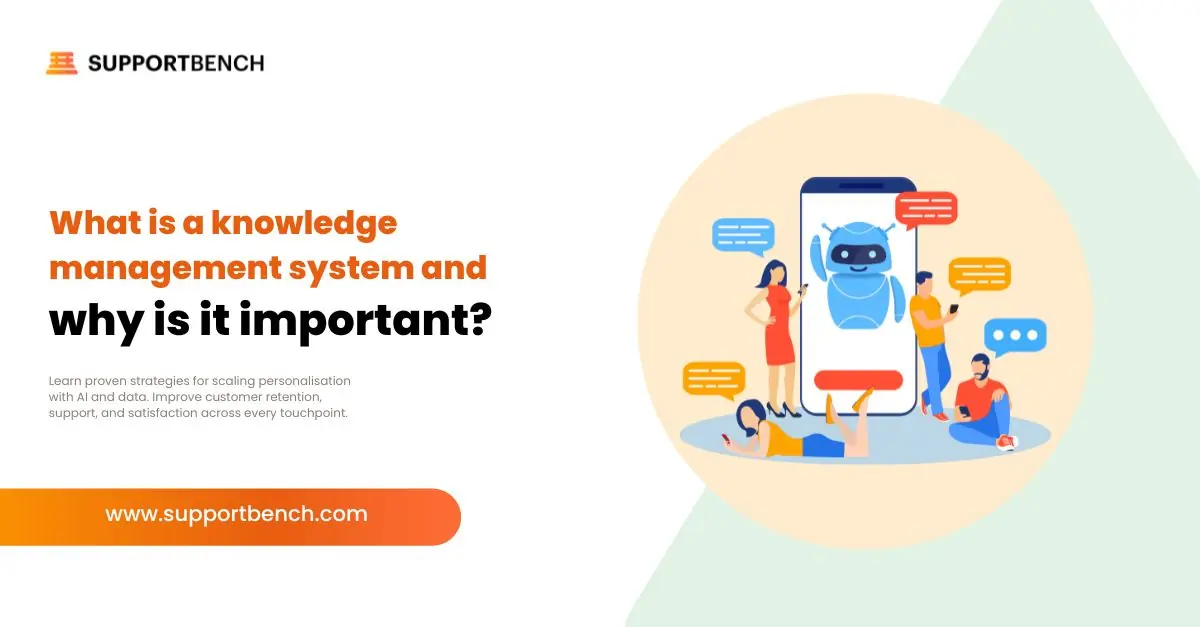The transformative power of artificial intelligence is undeniable, especially in the realm of customer support. In today’s digitally-driven era, enterprises are increasingly looking to AI to elevate their customer service game, ensuring unparalleled customer experiences that can set them apart from the competition. Below, we delve into the importance of embracing AI technologies and highlight six actionable items support leaders can harness for a next-level customer service experience.
“AI will be the best or worst thing ever for humanity.” — Elon Musk
Predictive Customer Service

One of the most remarkable advancements in AI is its ability to predict future occurrences based on current and past data. Imagine a world where your support team can anticipate issues before they occur, streamlining processes and creating more satisfied customers.
Predictive analytics allows support teams to identify potential issues and trends. This proactive approach can significantly reduce ticket volumes and improve overall customer satisfaction.
You can start by integrating AI-driven predictive analytics tools into your existing customer service platform. Analyze past customer interactions, feedback, and pain points to develop predictive models. Training the AI with historical data will improve its accuracy over time.
In fact, a software-as-a-service company might predict when a customer is likely to face issues during a version update, allowing support teams to prepare and address concerns even before they arise.
AI-driven Emotional Analysis
Emotion plays a pivotal role in customer interactions. AI-driven emotional analysis tools can detect a customer’s mood based on their text or voice inputs, enabling support agents to adapt their approach accordingly.
And, understanding emotional cues helps support agents engage empathetically, enhancing customer rapport and trust.
You can choose AI tools that offer sentiment analysis and integrate them into your support channels. Train your agents to use this data, adjusting their communication style based on the insights provided.
If a customer’s language indicates frustration, the support agent can address this by acknowledging their feelings and taking an empathetic stance, leading to better problem resolution.
Automated Knowledge Base Suggestions
While traditional knowledge bases are reactive (users search and find), an AI-driven one can proactively suggest solutions based on the context of a customer’s query.
Automated suggestions minimize customer effort, expediting problem resolution and enhancing the support experience.
Using AI-powered tools that analyze customer queries to suggest relevant knowledge base articles or solutions. Regularly update your knowledge base to ensure that it remains relevant and helpful.
So, if a user inquires about setting up a particular product feature, the AI system can instantly suggest a step-by-step guide from the knowledge base.
Advanced Chatbots for 24/7 Support
Chatbots have evolved from rudimentary question-answering scripts to sophisticated AI-driven entities capable of handling complex queries.
Advanced chatbots provide round-the-clock support, reducing wait times and ensuring that customers always have a point of contact.
You can implement AI-driven chatbots that can handle multifaceted inquiries. Regularly train and update your bot using real customer interactions to improve its efficiency.
And beyond basic FAQs, a bot can now guide a user through troubleshooting steps or even process simple transactions.
Personalized Customer Interactions
Personalization isn’t about addressing the customer by their first name. It’s about understanding their history, preferences, and needs.
Personalized experiences make customers feel valued, leading to increased loyalty and higher satisfaction levels.
We have access to AI tools that can analyze customer data to offer personalized service recommendations or solutions. Ensure that your support agents have access to this data during interactions.
For a returning customer, the support system can instantly provide the agent with a history of past interactions, ensuring continuity in service.
Self-learning Feedback Loops

Incorporate AI tools that constantly learn from feedback, refining and enhancing their performance over time.
Of course, continuous learning ensures that your support mechanisms remain current and efficient, adapting to changing customer needs and preferences.
You can now choose AI solutions that have built-in feedback mechanisms. Encourage customers to provide feedback after interactions and use this data to train your AI tools further.
And if an AI tool consistently misinterprets a particular customer query, feedback loops will identify this gap, allowing for corrective action.
“The more we embed AI into our vital infrastructure, the more it will train us on its strengths, weaknesses, and quirks.” — Fei-Fei Li
The Consequences of Ignoring AI in Customer Support
As we’ve explored the vast benefits and competitive advantages AI offers in customer support, it’s essential to also understand the potential consequences of sidestepping this transformative technology. Ignoring the wave of AI adoption can leave companies trailing in several pivotal areas:
Reduced Competitive Advantage
In today’s business environment, customers anticipate swift and personalized responses. Companies utilizing AI have the edge in delivering this. Those not leveraging AI could quickly find themselves lagging behind competitors who offer more efficient, personalized, and round-the-clock support. In an era where customer experience can differentiate industry leaders from the rest, staying competitive means embracing the best tools available.
Increased Operational Costs
AI can automate repetitive tasks, analyze vast datasets swiftly, and predict potential challenges. Without AI, companies might find themselves hiring larger teams to manage tasks that could be streamlined or automated. This increases operational costs and can lead to inconsistencies in service delivery.
Missed Opportunities for Proactive Support
Predictive analytics, a facet of AI, can alert support teams to potential issues before they escalate. Companies not leveraging this predictive power may find themselves consistently in reactive mode, scrambling to address problems after they’ve already impacted the customer, leading to diminished customer trust and loyalty.
Decreased Customer Satisfaction and Loyalty
Modern customers are tech-savvy and have come to expect the seamless experience AI-powered solutions can offer. A company not using AI might struggle with longer response times, less personalized interactions, and a lack of 24/7 support options. The result? Frustrated customers who may look elsewhere for better service.
Slower Decision Making
AI-driven insights can be a game-changer for strategic decision-making. Without the data analytics capabilities of AI, companies risk making decisions based on outdated or incomplete data, potentially leading to misguided strategies and missed opportunities.
Strain on Human Resources
Without AI taking on the heavy lifting of routine queries and tasks, human agents might find themselves overwhelmed. This can lead to burnout, increased turnover rates, and the subsequent costs of hiring and training new personnel.
Summing it up!
It’s clear that the future of customer support is intertwined with AI. While the upfront costs and training associated with integrating AI tools might deter some companies, the long-term benefits far outweigh these initial investments. Companies that choose to forgo these advancements risk not just falling behind but potentially becoming obsolete in an ever-evolving digital landscape.
Platforms like Supportbench, are pioneering the way with such AI-driven features, underscoring the importance of intuitive, seamless, and data-driven customer support. Enterprises that look ahead and integrate these AI functionalities into their support strategy will not only meet but exceed modern customer expectations, solidifying their position in the vanguard of next-gen customer support.















